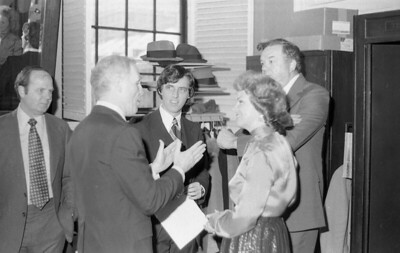Browse Exhibits (1 total)
Kathleen Sullivan: "That Girl" Who Shook Things Up

“So it is going to be,” she said softly, “and things are going to change.”
–Kathleen Sullivan [1]
Kathleen Sullivan joined the Boston School Committee (BSC) in 1974 and served for six years, during the height of what became known as the busing crisis. Though Sullivan reformed the committee during those years, history remembers another woman, Louise Day Hicks, as the leader of the Boston School Committee during the tumultuous desegregation years. Hicks, outspoken founder of the anti-busing group ROAR, led the committee in resisting the Racial Imbalance Act of 1965 in the decade prior to busing. The following exhibit tells the story of moderate Kathleen Sullivan and how she changed Boston’s school system during one the city’s most tense periods.
Kathleen Sullivan entered the 1973 race for the BSC as a complete newcomer but, unlike most people who ran for election to the committee, she had taught in public schools in both in New York and Boston. Sullivan differed from Hicks in many wars. While they both came from affluent families and went to school for education, Hicks never taught in Boston schools. She grew up in South Boston, an area known for its fierce local pride and one of the most vocal anti-busing communities. Sullivan grew up outside of Boston, and taught in Harlem and Bedford-Stuyvesant before teaching in Dorchester’s John Marshall School. Her concern over student education propelled her into the race for school committee and allowed for her reelection in both 1975 and 1977.
This exhibit uses documents from the Boston City Archives and the National Archives to demonstrate how an outsider entered the Boston School Committee in 1974 and completely challenged the status quo, altering the committee for the better. It explores key phases of Sullivan’s work, including how Sullivan got elected in 1973, the reasons why she continued to get elected, her interactions with her constituents, her leadership as President of the BSC in 1977, and her attempted run for Senate in 1978. Popular memory associates Louise Day Hicks and anti-busing with the BSC. By taking a look at Kathleen Sullivan’s role in the move to desegregate Boston Public Schools, we gain an often overlooked narrative because of how she did not quite fit in with her contemporaries at the time.
[1] Jeff McLaughlin, “Teacher Kathy Sullivan learns how to win,” The Boston Globe, November 7, 1973, 34.


